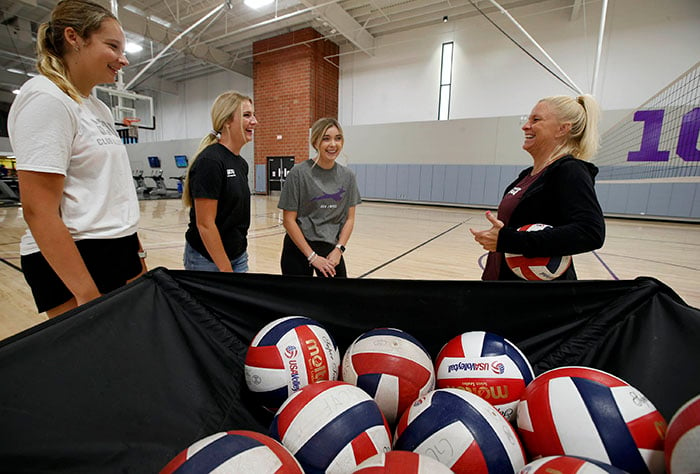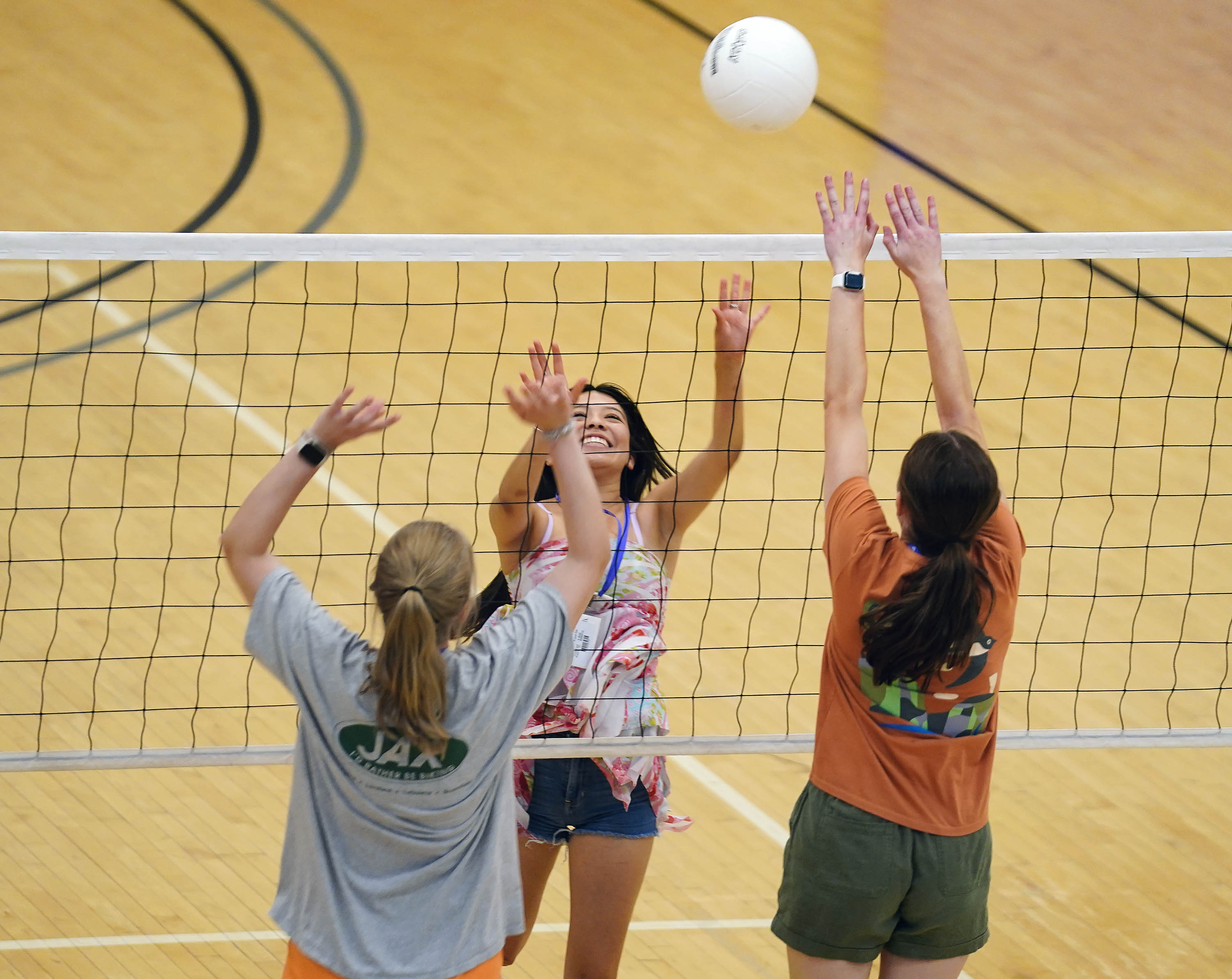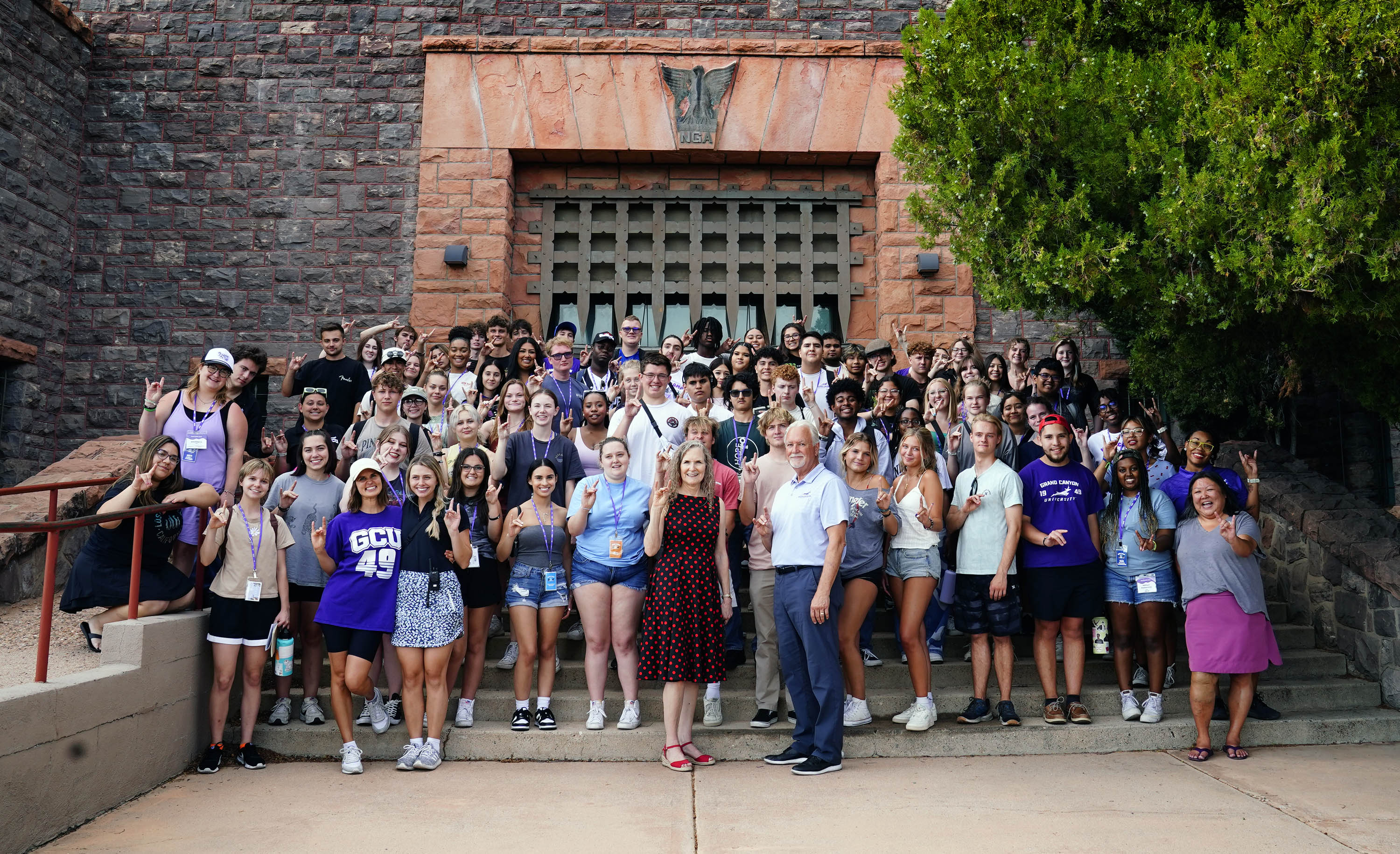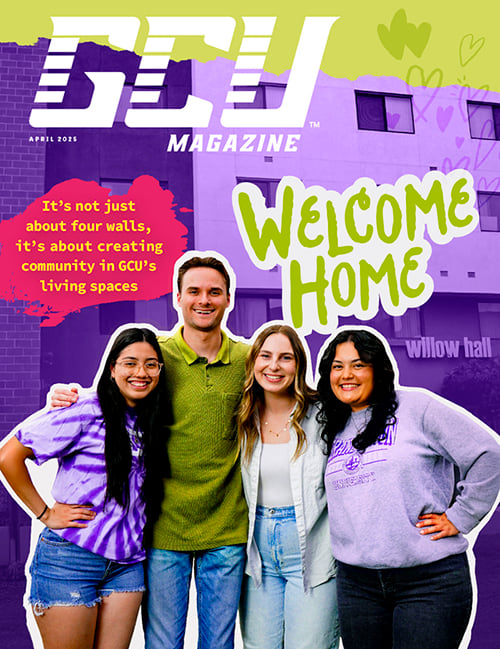
Third of a nine-part series on GCU academics.
Story and photos by Ashlee Larrison
GCU News Bureau
A dissertation is one of the most difficult challenges in higher education. Learners are attempting to complete one of the hardest degree programs and essentially are writing a book, all while far surpassing what they had thought they knew about their field of study.
That reality is foremost in the minds of faculty members in Grand Canyon University’s College of Doctoral Studies in their quest to make the process go smoothly.

“We can’t make it easy, but we try to make it easier by the addition of all the great support services that we have,” said Dr. Michael Berger, the college’s dean.
Right from the start, the college offers services and resources to help guide learners toward their degrees in ways that few other doctoral programs do:
- Early dissertation focus
- Proposal and dissertation templates
- Milestone guide
- Long-term contracts with dissertation committee members
- Monthly training for dissertation committee members
- Numerous feedback opportunities
- Skilled research specialist teams and student service counselors
“I think the biggest thing that we do to help is the integration of the dissertation from the very first day of class,” Doctoral Chair Dr. Wayne Schmidt said. “I can tell you I heard the word dissertation twice in all of my coursework (at another university). When I was done with my coursework I got a letter that said, ‘Welcome to candidacy. Have a nice time writing your dissertation.’ That’s it.”
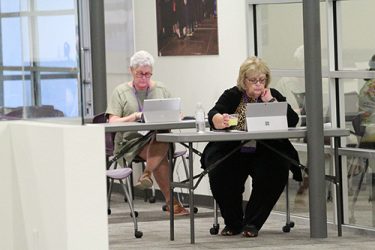
One of the first discussion questions learners are asked in their first GCU course is, “What are you thinking about as your dissertation topic?” Even if that same topic doesn’t make the final cut, Schmidt said, the important thing is that learners are at least thinking about it.
Learners also are given several resources to help the process flow more smoothly. One of those resources is a template to help organize their dissertation.
“Oftentimes if you look at other institutions, they’ll give learners a four- or five-page dissertation guide in terms of what should be in a dissertation,” Doctoral College Assistant Dean Dr. Cynthia Bainbridge said. “Our dissertation template is something that includes narrative of what you need to put in each section. We have detailed criteria tables and information specifically for the learners to include in each section and each chapter.”
Within the templates are rubrics with examples on how to structure the dissertation.
“The template says, ‘Hey, please do this’ but then the rubric is commentary on, ‘By the way, this is how you should do it.' For instance, ‘This is an OK version of it, this is the preferred version of it, this would be an exceptional version of it,’” Berger said. “I think that’s really helpful to learners because so much of the dissertation is peer review. It’s not just, ‘I’m going to submit this once, I’ll get a grade and then I never have to do this again.’ No, you’re going to iteratively work on this document for much of your program.”
It is a resource Bainbridge believes is beneficial to learners, and other doctoral programs have noticed.
“We have a number of institutions that contacted us and asked if they could reference our template or refer their students to our template,” Bainbridge said. “We think it’s an excellent resource.”
In addition to templates, the college also offers its learners a milestone guide. Bainbridge said the guide “outlines every major milestone and then the corresponding steps to complete that milestone.”
As far as services go, GCU’s College of Doctoral Studies puts a major emphasis on making sure faculty are equipped to offer learners the best possible experience throughout their doctoral journey.
One way Berger and his team accomplish that goal is by establishing contracts with their chairs to increase the odds of a learner remaining with the same chair throughout the duration of their doctoral program.
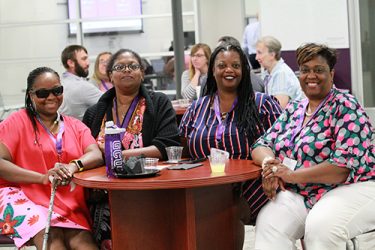
“We actually assign a chair to each learner to chair their committee, and then our chairs also put on long-term contracts,” Bainbridge said. “Having our chairs on these long-term adjunct contracts really helps to maintain that relationship between the learner and the chair so that the learner can have their same committee and chair throughout their dissertation process.”
In addition to long term contracts, training for faculty continues past the initial hiring training.
“The training isn’t just a one-shot deal,” Assistant Dean Dr. Ronald Berman said. “We run webinars each and every month for faculty, we record them and then faculty can look at it if they miss the webinar so it’s not just we’ll give you some training in January and we’ll get back to you again next year, it’s each and every month.”
Through its services and resources, the college continues to strive to maintain a program that provides high quality in every area.
“Most colleges just look at the curriculum or the faculty or the technology. We’ve spent several years trying to put it all together, and we call that our DNA,” Berman said.
It is a method that, according to the doctoral DNA website, the college uses to link “all the essential elements of a doctor for the purpose of creating an engaging, effective and exciting educational experience for the GCU doctoral learner.”
The college also provides access to a research specialist team, to be a source of contact for any learner, faculty member or counselor who may need guidance throughout the research process.
“The dissertation process is complicated,” Bainbridge said. “It’s really their first piece of professional research, and so there’s a lot of learning that goes on in that process. By having a research specialists team, we can really do a great job of extending support to the learners, first and foremost, and our faculty as well as help support the counselors and their work of supporting the learners.”
Learner feedback is frequently used as well to help keep track of what learners enjoy and what they think needs improvement within their program.
By doing this, Berger and his staff are making efforts to combat what people think they know about doctoral programs and help learners know exactly what they can expect within the program. The college also hopes to challenge learners to be open to expanding their knowledge in their area of study despite the level of experience or level of education they have on the topic.
“This is a completely different kind of learning,” Schmidt said. “I use the expression, ‘A doctoral degree is not about getting smarter, it’s about getting better.’”
And getting better is what the College of Doctoral Studies continues to do as it quickly approaches surpassing a thousand graduates. It is an accomplishment the college has worked hard for with no plans of slowing down anytime soon.
“We want to get everyone to that finish line,” Berger said. “I know the things that we do … we believe they have a positive impact on learners’ success, and learner's success is 100% what we’re focused on.”
Contact Ashlee Larrison at (602) 639-8488 or ashlee.larrison@gcu.edu
****
Related content:
GCU Today: Doctoral learner passes program … then gives birth
GCU Today: From graduate to dean after receiving doctoral degree



